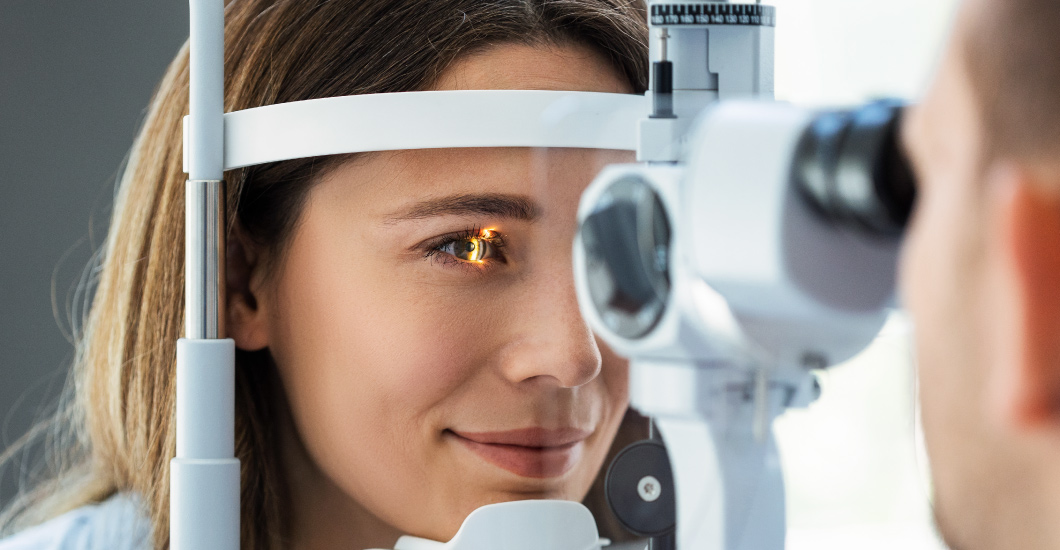Understanding Glaucoma
Doctor's advice /
Discover comprehensive info on glaucoma: causes, symptoms, treatments, prevention, & tips for living with glaucoma. Stay informed for better eye health!

Glaucoma is a serious eye condition that affects millions of people worldwide. Despite its prevalence, many individuals are unaware of its existence or its potential impact on vision. In this article, we will delve into what glaucoma is, its prevalence, risk factors, causes, prevention methods, symptoms, treatment options, diagnosis, prognosis, and tips for living with glaucoma.
What is Glaucoma?
Glaucoma refers to a group of eye diseases characterized by damage to the optic nerve, often associated with increased pressure within the eye. This pressure, known as intraocular pressure, can cause gradual and irreversible vision loss if left untreated. The optic nerve is responsible for transmitting visual information from the eye to the brain, making its damage particularly concerning.
According to the World Health Organization (WHO), glaucoma is the second leading cause of blindness globally. It's estimated that over 70 million people worldwide are affected by glaucoma, with approximately 10% of them experiencing blindness in both eyes. Each year, millions of new cases are diagnosed, highlighting the significant public health impact of this condition.
Glaucoma Causes and Prevention
While glaucoma can affect individuals of any age, certain factors may increase one's risk of developing the condition. These include:
- Age: Glaucoma becomes more common as individuals age, particularly after the age of 40.
- Family History: A family history of glaucoma can increase the likelihood of developing the condition.
- Ethnicity: People of African, Hispanic, or Asian descent are at higher risk compared to individuals of Caucasian descent.
- Medical Conditions: Certain medical conditions such as diabetes, hypertension, and heart disease may increase the risk of glaucoma.
- Eye Trauma or Surgery: Previous eye injuries or surgeries may predispose individuals to glaucoma.
The exact cause of glaucoma is not fully understood, but it is often associated with increased intraocular pressure resulting from a buildup of aqueous humor, the fluid inside the eye. This pressure can damage the optic nerve over time, leading to vision loss. Other potential contributing factors include poor blood flow to the optic nerve and genetic predisposition.
While glaucoma cannot always be prevented, certain measures may help reduce the risk or delay its onset:
- Regular Eye Exams: Routine dilated eye exams that include the measurement of intraocular pressure and examination of the optic nerve can aid in early detection and treatment of glaucoma.
- Healthy Lifestyle: Maintaining a healthy lifestyle, including regular exercise and a balanced diet, may help reduce the risk of glaucoma by promoting overall eye health.
- Eye Protection: Protecting the eyes from injury, particularly during sports or hazardous activities, can help prevent trauma-induced glaucoma.
If you have diabetes or hypertension, you are twice as likely to develop glaucoma. Make sure you are compliant with your treatment plan and go to your control appointments.
Symptoms and Treatments
In its early stages, glaucoma symptoms may not be noticeable—earning it the nickname "the silent thief of sight." As the condition progresses, however, individuals may experience:
- Blurred Vision
- Halos around Lights
- Severe Eye Pain
- Headaches
- Tunnel Vision (loss of peripheral vision)
Treatment for glaucoma aims to lower intraocular pressure and prevent further damage to the optic nerve. This may involve:
- Eye Drops: Prescription eye drops are commonly used to reduce intraocular pressure by either decreasing the production of aqueous humor or improving its drainage from the eye.
- Oral Medications: In some cases, oral medications may be prescribed to lower intraocular pressure.
- Laser Therapy: Laser procedures such as trabeculoplasty or iridotomy can help improve drainage of aqueous humor from the eye.
- Surgery: In advanced cases or when other treatments are ineffective, glaucoma surgery may be necessary to lower intraocular pressure and preserve vision.
Diagnosis and Prognosis
Diagnosing glaucoma typically involves a comprehensive eye examination, including measurement of intraocular pressure, examination of the optic nerve, and visual field testing. Early detection and treatment are crucial for preventing vision loss, as glaucoma damage is irreversible.
While there is currently no cure for glaucoma, prompt and appropriate treatment can help slow or halt the progression of the disease, preserving your remaining vision. Living with glaucoma can present challenges, but with proper management and lifestyle adjustments, individuals can maintain a good quality of life. Some tips include:
- Adhering to Treatment: It's essential to follow your doctor's prescribed treatment plan, including taking medications as directed and attending regular follow-up appointments.
- Monitoring Vision: Regular monitoring of vision and intraocular pressure can help detect any changes early, allowing for timely intervention.
- Lifestyle Modifications: Certain lifestyle changes, such as avoiding smoking, managing stress, and maintaining a healthy diet, can support overall eye health and may help slow the progression of glaucoma.
Seeking Treatment
Glaucoma is a prevalent eye condition that can have a profound impact on vision if left untreated. By understanding its causes, symptoms, treatment options, and preventive measures, individuals can take proactive steps to protect their vision and maintain a good quality of life. Regular eye examinations, adherence to treatment plans, and lifestyle modifications are essential components of managing glaucoma effectively.
If you have concerns about your eye health or are at risk for glaucoma, consult your healthcare professional for personalized guidance and care.
Don't postpone your eye health—call 1-844-665-4827 to schedule a visit at a Sanitas Medical Center near you today.


